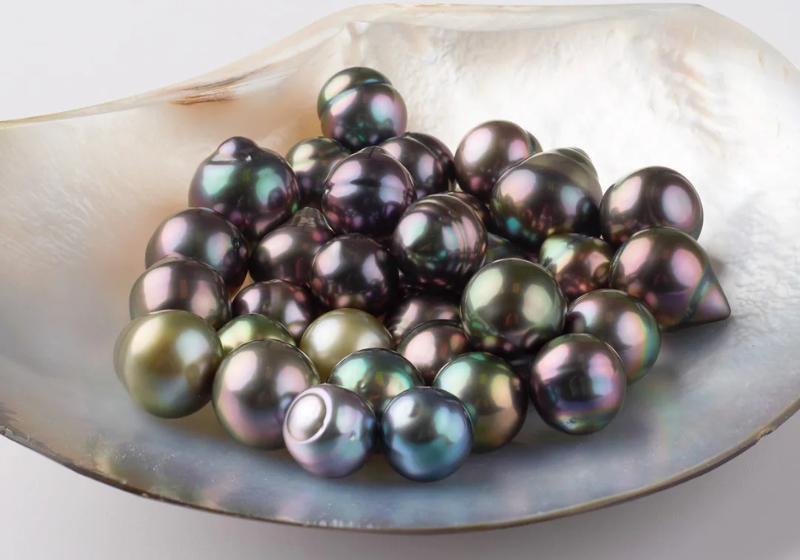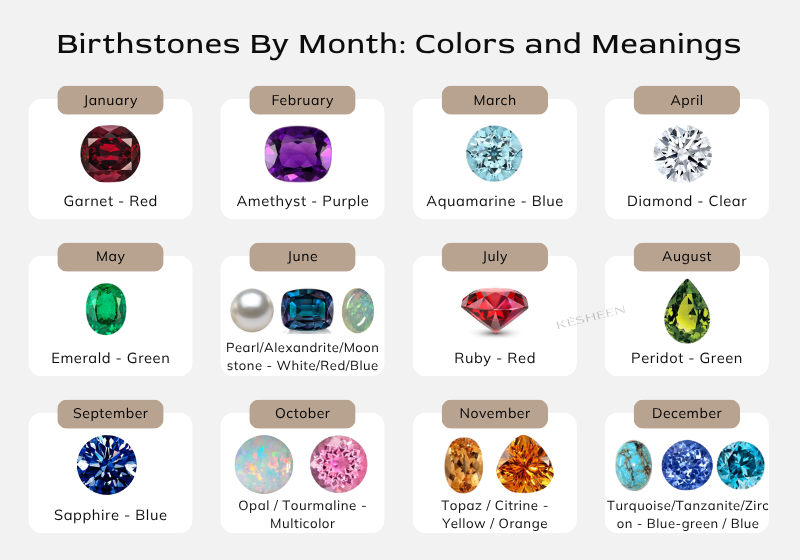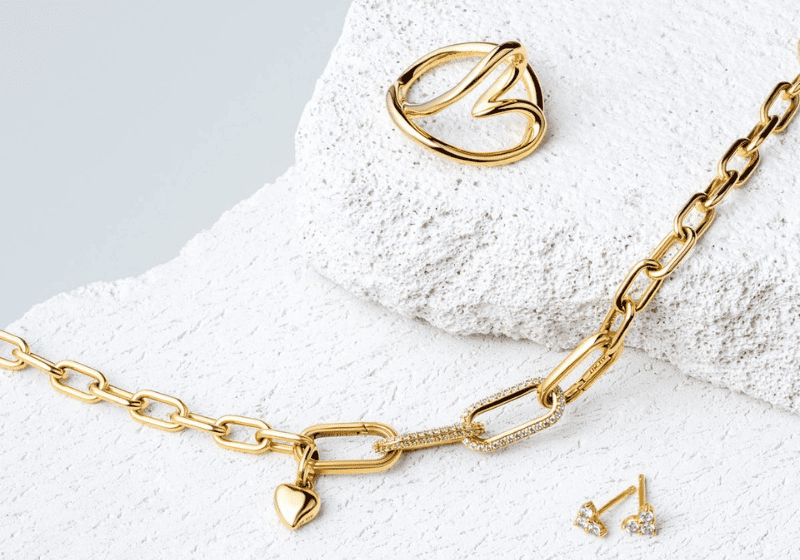Pearls come in many colors, from classic white and gold to pink, lavender, and blue. Are black pearls rare and expensive? In short, yes. They are among the rarest pearl colors, admired for their dark body and enchanting overtones of green, blue, and purple.
In this blog, we’ll explore the rarest pearl color, why black pearls are so rare, black pearl value, and how small and fashion jewelry brands can incorporate them into beautiful collections.
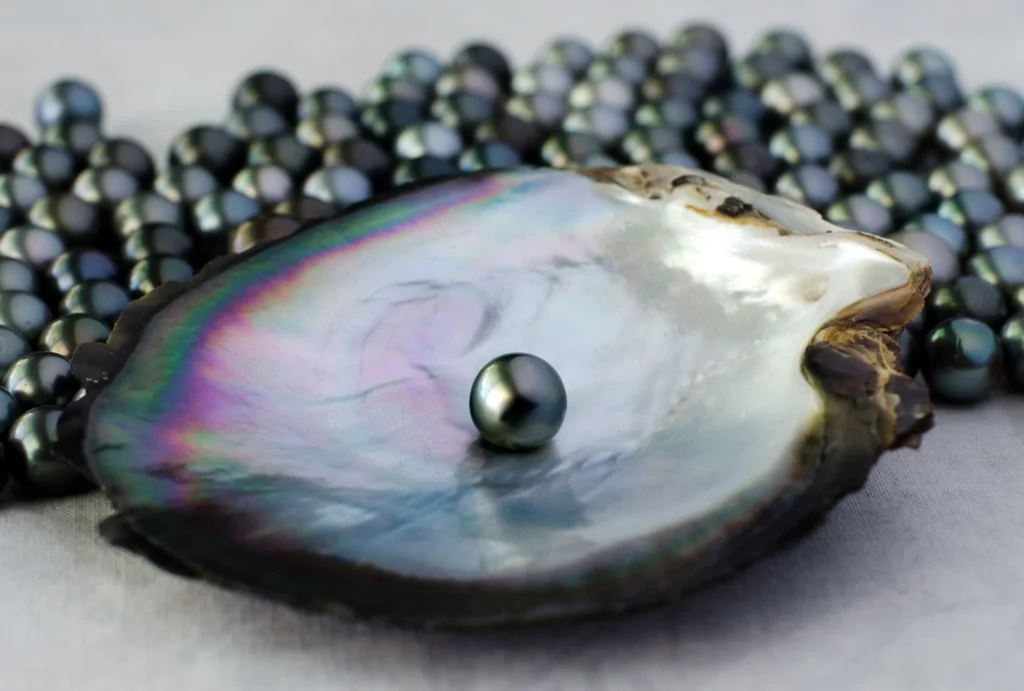
The Connection between Pearls and Stainless Steel in Fashion Jewelry
There’s a smooth connection between pearls and stainless steel. They represent the combination of the ocean’s most elusive treasure with durable jewelry.
- Pearls as a Staple of Ocean-Inspired Fashion Jewelry
Pearls are a constant favorite in the jewelry world, especially in fashion jewelry collections inspired by the sea. From delicate freshwater pearls to perfectly round shell pearls, designers continually find new ways to incorporate these gems into beach-inspired or resort-ready collections. Whether set in minimalist designs or paired with coral, shells, and turquoise, pearls effortlessly blend sophistication with a laid-back, seaside spirit.
- Stainless Steel is the Ideal Match for Ocean-Inspired Pearls & Swimwear Accessories
Stainless steel jewelry is the perfect match to pearls, especially for marine-based fashion jewelry and swimwear accessories. The durability, waterproof and affordability of stainless steel complements the delicate nature of pearls, thereby creating jewelry pieces that can withstand water and tarnishing without affecting their beauty.
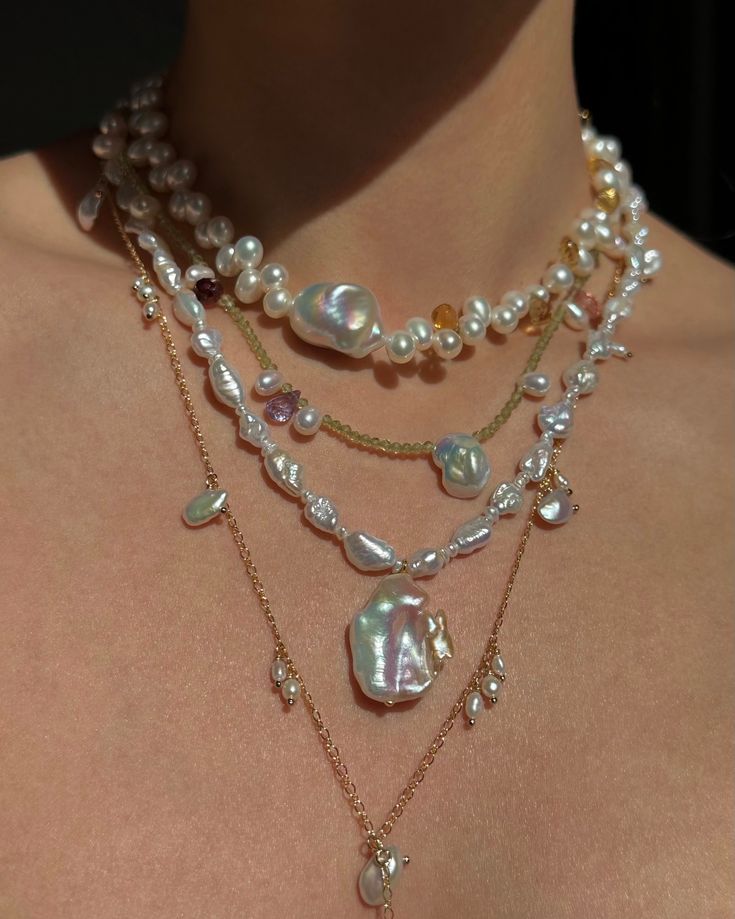
What Color of Pearl is the Rarest? Pearl Color Rarity Chart
The rarest pearl color is black, prized for its deep, exotic hues. Today, however, many black pearls on the market are dyed rather than natural. Other colors like pink, gold, light blue, and lavender are also relatively uncommon, but none match the rarity of authentic black pearls.
Here’s a quick comparison of pearl colors ranked from rarest to most common, based on natural occurrence and market availability:
| Pearl Color | Rarity Level | Common Source |
| Black (Natural) | Very Rare | Tahitian |
| Blue | Very Rare | Akoya, South Sea |
| Gold | Rare | South Sea |
| Pink | Moderately Rare | Freshwater, Akoya |
| Lavender | Moderately Rare | Freshwater |
| White | Common | Akoya, Freshwater, South Sea |
| Dyed Black | Common (Treated) | Freshwater (color-enhanced) |
What are Black Pearls?
Black pearls are those pearls with dark coloration. These pearls are cultivated primarily in the lagoons of French Polynesia from the black-lipped Pinctada margaritifera oyster.
What do black pearls symbolize? Black pearls have different meanings in different cultures. For some, these pearls are believed to have protective powers and bring good luck to the wearer. For others, it symbolizes emotional and mental healing.
Are Black Pearls Rare?
Yes, natural black pearls are among the rarest pearls in the world. Less than 5% of all pearl harvests yield natural black pearls, making them highly coveted by collectors and jewelers alike. Factors contributing to black pearl rarity include the limited habitat of the black-lipped oyster, strict environmental conditions, and long cultivation periods.
How Rare Are Black Pearls?
The rarity of black pearls varies by type and origin:
- Natural Tahitian Pearls: Extremely rare; harvested mainly in French Polynesia. Only a small percentage are gem-quality.
- Black Akoya Pearls: Cultured and dyed; moderately rare and produced in Japan, China, and Vietnam.
- Black Freshwater Pearls: Commonly dyed; widely available and more affordable.
Additionally, luster, surface quality, and shape affect black pearl value. Large, round, flawless black pearls are especially rare and highly priced in the market.
Are Black Pearls Real?
Yes, there are real black pearls. They are known as “Tahitian pearls.” These pearls are natural and gotten from French Polynesia Islands. But because of their rarity, other types of black pearls are made—Black Akoya and Black Freshwater. They are dyed to resemble natural black pearls.
How are Black Pearls Formed?
Natural Tahitian black pearls are made when an irritant enters the shell of a black-lipped Pinctada margaritifera oyster. Cultured black Tahitian pearls, on the other hand, are formed when a pearl farmer manually inserts a bead nucleus into a black-lipped Pinctada margaritifera oyster.
Why are some pearls black when they are not gotten from a black-lipped Pinctada margaritifera oyster? They are simply white Freshwater or white Akoya pearls that are dyed to resemble natural black pearls.
Where Do Black Pearls Come From? Types of Black Pearls
There are 3 major types of black pearls, which are: Tahitian, black Akoya, and black freshwater pearls. They have 2 main origin points – French Polynesia and East Asia (China, Japan, & Vietnam).
Tahitian Black Pearls: The True Black Pearl
These are natural, untreated, dark color pearls. In reality, they are not completely black; they have different shades of color, such as dark green, blue, purple, silver, gray, and peacock. Tahitian black pearls originate from French Polynesia Islands and are usually derivedderived from Pinctada margaritifera, black-lipped saltwater oysters. Their sizes vary, ranging from 7 mm to 16mm or larger.
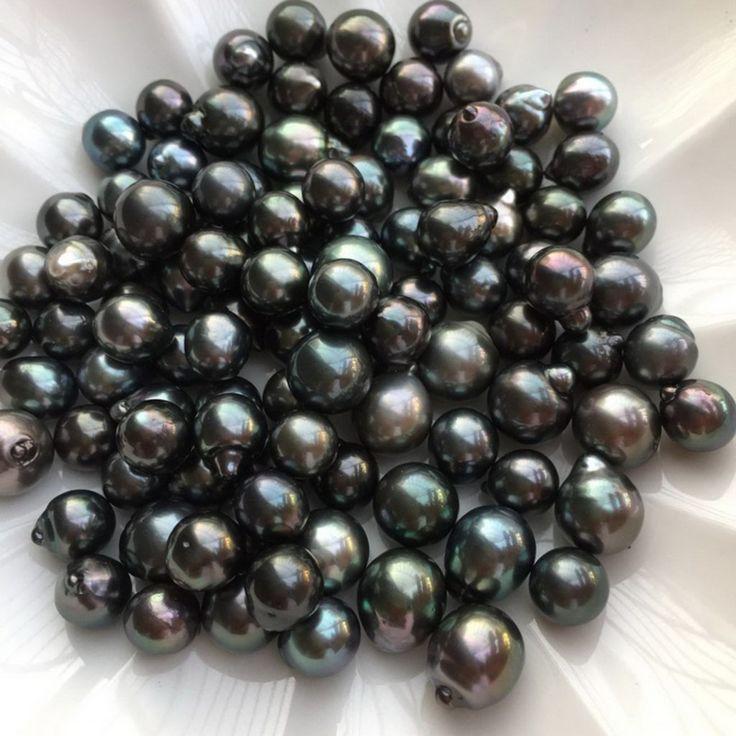
Black Akoya & Freshwater Pearls: Dyed Black Pearls
These are unnatural black pearls that are professionally dyed to have uniform color and shape.
Black Akoya originates from Japan, China, and Vietnam and are often derived from Pinctada fucata martensii, saltwater oysters. They can be dyed to be completely black, blue-black, or green-black. Their sizes vary from 1 mm to 10 mm.
Black freshwater pearls originate from China and are derived from Hyriopsis cumingii, freshwater pearl mussel. They can be dyed to a dark-blue color or a near jet black. Their sizes vary from 2-15mm.
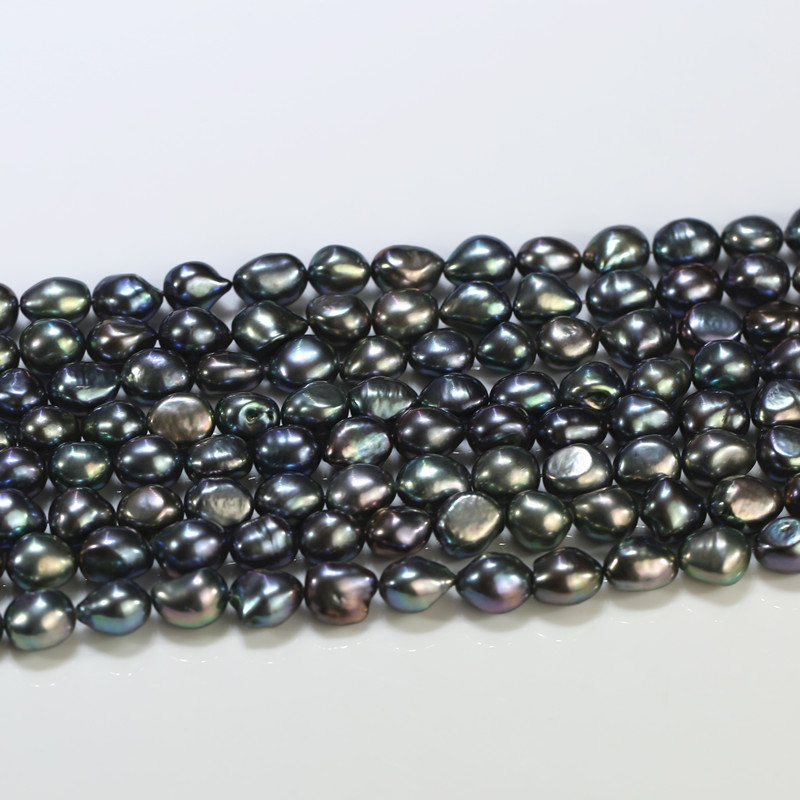
Are Black Pearls Valuable? Are They More Expensive Than White Pearls?
Yes, natural black pearls are extremely valuable and generally more expensive than most white pearls due to their rarity, exotic origin, and longer cultivation period. Tahitian black pearls, in particular, are highly valued and can be extremely costly. In contrast, cultured black pearls such as Akoya or freshwater varieties are more affordable and often fall within the same price range as white pearls, making them accessible for a wider range of jewelry designs.
How Much are Black Pearls Worth?
Black pearl price varies. Natural black Tahitian pearls are more durable and rare, thus worth more than dyed black pearls.
Price Range of Black Pearls
- Natural Tahitian black pearls price typically range from $200 to over $30,000 per strand (depending on the origin, size, luster, and quality).
- Dyed black Akoya pearls are usually priced around $150 to $2,000 per strand.
- Dyed black freshwater pearls are valued at below $50 to $1,000 per strand in the fashionin the fashion jewelry industry.
Factors That Affect Pearl Value
- Origin: Natural Tahitian pearls are more valuable than dyed ones.
- Size: Larger pearls (over 10mm) command higher prices.
- Luster & Surface Quality: High shine and minimal blemishes increase value.
- Shape: Round pearls are the most valuable, while baroque shapes offer a unique aesthetic at a lower cost.
- Natural vs. Dyed: Natural black pearls are significantly more expensive.
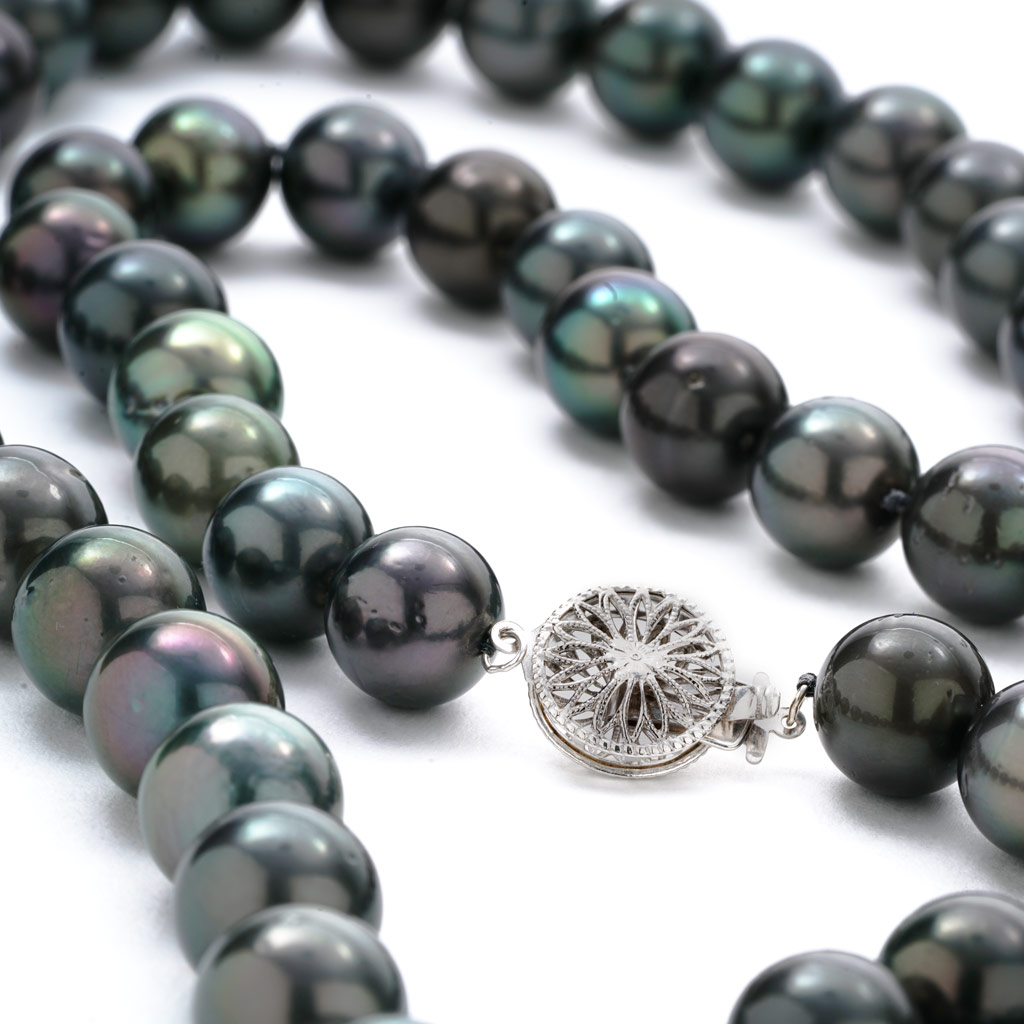
Tips for Small & Fashion Jewelry Brands Considering Black Pearls
For small and fashion jewelry brands, black pearls present an opportunity to upscale your jewelry production methods. But this must be done professionally. Here are some essential tips you should incorporate when considering black pearls:
Incorporate Black Pearls for Product Differentiation
Include black pearls in your product collection to offer customers various options to choose from. This makes you stand out in an oversaturated market where many people focus on white or synthetic pearls. The mystery and sophistication of black pearls establish brand identity, elevating your entire jewelry collection from ordinary to extraordinary.
Opt for Black Freshwater Pearls
Opting for black Akoya and freshwater pearls is an intelligent compromise if you’re a beginner in the fashion jewelry industry. As a small fashion jewelry brand, don’t feel pressured to use only Tahitian black pearls. Integrate high-quality dyed pearls, which are more affordable and widely available. They allow you to offer the look of black pearls at accessible price points.
Pair Pearls with Durable Base Materials
Smart material selection is crucial when incorporating black pearls into fashion jewelry. Pair pearls with durable base materials like stainless steel or PVD coating jewelry that are waterproof, sweat-resistant, and affordable. This approach is particularly important when targeting summer and ocean-themed designs.
Leverage Size & Quantity for Budget Flexibility
Smaller pearls can reduce your costs. Consider designs that use fewer pearls. A single, beautiful black pearl on a delicate chain, or a pair used in simple earrings, can be more cost-effective and just as stylish as a full strand. This approach allows you to offer substantial-looking pieces at cost-friendly prices while maintaining the luxury appeal that black pearls provide.
Conclusion
Are black pearls rare? Yes, in fact, they are the rarest pearl color. However, nowadays, there are many cultured black pearls in the market, allowing both small-scale and large-scale fashion jewelry brands to incorporate black pearls in their collection.
Ready to elevate your jewelry collection with stunning black pearl designs? Partner with us as your trusted custom stainless steel jewelry manufacturer to create exceptional pieces that combine the timeless elegance of black pearls with the durability and modern appeal of stainless steel.
